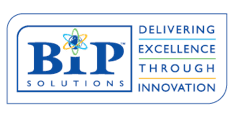
Plant: To Buy or not to Buy — That is the Question!
Deciding whether it’s best to buy or to hire plant equipment for your next construction project is a big decision. It’s important for any business to remain financially savvy and to ponder the pros and cons of all purchases. And it’s no different for construction companies, both large and small.
With the cost of heavy-duty machinery, such as excavators, dumpers and telehandlers costing tens of thousands of pounds, it’s worth taking some time to think about the implications of both options.
Estimating future usage
It’s important to estimate how often you’re likely to use the machinery when looking into buying or hiring.
Is the plant required for a one-off project or for multiple projects? Do you have the capital to buy the equipment upfront? Do you have the necessary time and skills to manage your machinery should you decide to buy?
If the equipment is only required for a short-term, one-off project or you don’t have the time to manage the machinery and take care of regular servicing and maintenance issues, then the hire option may be best for you. Other benefits of hiring include: not incurring repair costs, as these will be taken care of by the hire company; only paying for the plant as and when it’s needed; and not having plant sitting idle and depreciating for extended periods of time.
However, should you require the equipment for continuous usage across several projects and you have the time to deal with the servicing and maintenance issues yourself, then it may be more cost effective to buy. Other benefits of buying include: having the equipment on hand and at your disposal 24/7; paperwork and record keeping is reduced; and having an asset with resale value when the equipment is no longer needed. For larger construction companies, it invariably makes sense to buy site plant due to high-volume usage. However, buying brand-new machinery is obviously not the only option.
Purchasing good-quality, used plant may be a sound financial choice, as you won’t be paying the premium for the very latest equipment, but you’ll still acquire a valuable, quality asset. It may also be worth discussing the varying tax implications of buying or renting expensive machinery with your accountant.
There’s no doubt that owning your own heavy-duty machinery sends out good signals to both current and potential customers, as it indicates that your business is established, reliable and stable.
But what should you bear in mind before purchasing plant?
Protecting your asset
Before buying expensive heavy-duty machinery, it’s important to consider the security risks and make sure your company is fully protected.
According to the Thames Valley police: ‘Millions of UK pounds worth of plant machinery is stolen nationally every year. The effects of plant equipment theft go beyond the replacement of stolen equipment as the loss of equipment can affect victims’ day-to-day work schedules’.
Obviously, the theft of any plant equipment will come as a huge inconvenience to any firm, with the cost implications far exceeding the replacement cost. So having adequate insurance to cover the theft of your machinery is absolutely essential.
But how else can you protect yourself from potential financial loss?
Install a tracking system in your heavy-duty machinery and you will deter thieves and reduce your insurance premium. Having a tracking system fitted in your equipment allows the whereabouts of your stolen machinery to be tracked and to be remotely immobilized — preventing the engine from being restarted once the culprit turns it off. Consequently, the authorities will know exactly where to go and will be able to quickly recover your stolen plant.
If you’re considering purchasing heavy machinery for your next project, speak to one of our helpful team, on 0161 476 4050 to discuss how a Phantom tracking system can help to protect your asset.





